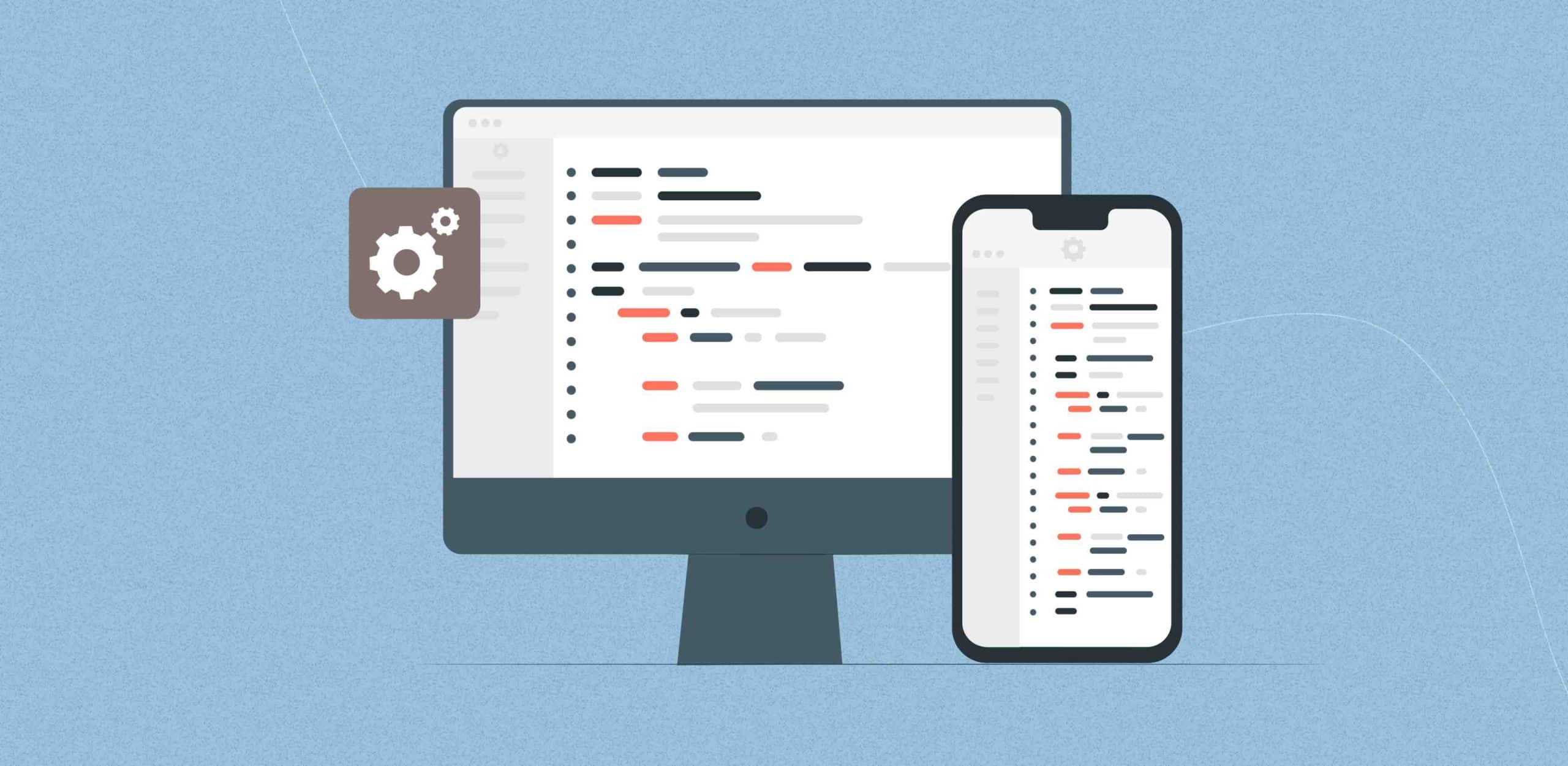Introduction
Custom AI Development Company — the phrase alone captures what modern e-commerce needs to thrive. In today’s hyper-competitive digital marketplace, selling products isn’t enough; success comes from predicting customer behavior, personalizing experiences, and performing at scale.
Think of how Amazon seems to “know” what you want next or how Shopify recommends products tailored just for you. These are not coincidences—they’re the result of AI in e-commerce quietly analyzing data, learning from it, and enhancing every click, scroll, and purchase.
But here’s the reality: not all AI is created equal. Off-the-shelf tools can automate tasks, but they often fall short when it comes to addressing the unique needs of your online store. That’s where a Custom AI Development Company becomes essential. It doesn’t just add AI features—it builds intelligent systems that deeply align with your brand’s data, customer journeys, and business goals.
In this article, we’ll explore how AI-powered personalization and AI retail automation are transforming online retail—and why partnering with the right AI experts can be the key to unlocking unstoppable e-commerce growth with AI.
Contact Enfin to build tailored AI solutions that accelerate your e-commerce growth.
The Rise of AI in E-commerce
The global retail landscape has shifted dramatically in the past few years. Online sales have exploded, but so have customer expectations. Shoppers now demand faster deliveries, personalized experiences, and instant support. Meeting these demands manually is nearly impossible. That’s where e-commerce AI solutions come in.
From Automation to Intelligence
Initially, e-commerce brands adopted automation to streamline operations—inventory management, pricing, and order fulfillment. Today, AI has taken automation several steps further:
- It learns from your customer data to predict what they’ll buy next.
- It adapts your pricing dynamically based on demand and competitor trends.
- It powers chatbots that can handle 80% of customer queries without human help.
Data-Driven Retailing
Every click, scroll, and purchase leaves a digital footprint. AI captures and analyzes this data in real time to understand customer intent, reduce cart abandonment, and increase lifetime value. According to McKinsey, businesses that fully integrate AI into their e-commerce strategy see up to 25% revenue growth compared to those that don’t.
Key Custom AI Use Cases Driving E-commerce Growth
Artificial Intelligence has become the silent growth engine behind the world’s most successful online retailers. It’s not just improving efficiency—it’s transforming how businesses understand, engage, and retain customers. Below are the most impactful AI in e-commerce applications that are helping brands achieve smarter, faster, and more profitable operations.
- Personalized Product Recommendations
Gone are the days of generic product listings. Today’s shoppers expect every browsing experience to feel uniquely tailored to them—and AI-powered personalization makes that possible.
Using sophisticated machine learning models, e-commerce platforms analyze a user’s browsing behavior, purchase history, location, device type, and even dwell time on specific product pages. AI then identifies patterns and delivers hyper-personalized recommendations in real time.
For instance, if a customer frequently shops for fitness gear, the system might suggest complementary products like protein powders or smartwatches during checkout. These intelligent cross-sell and up-sell recommendations don’t just enhance convenience—they directly boost conversion rates by 20–30%, according to McKinsey.
Personalization also increases customer satisfaction and loyalty. When shoppers feel understood, they’re more likely to return—creating a compounding effect on lifetime customer value.
- Dynamic Pricing and Revenue Optimization
In the fast-moving e-commerce landscape, pricing can make or break sales. Static pricing models are no longer effective when market conditions change hourly. That’s where AI retail automation shines.
AI-driven pricing engines continuously monitor multiple factors—competitor prices, market demand, inventory levels, and customer behavior—to calculate the most optimal price at any given moment. This process, called dynamic pricing, enables retailers to remain competitive while safeguarding profit margins.
For example, if your competitor lowers the price of a similar product or a specific item is trending, your AI system can automatically adjust prices to maintain competitiveness without manual intervention. Over time, this leads to improved margins, better inventory turnover, and increased customer trust in your brand’s value proposition.
Retailers using dynamic pricing powered by AI report profit improvements of up to 10%—a game-changer in industries where every percentage point counts.
- Smart Chatbots and Virtual Shopping Assistants
Customer support can be both expensive and time-consuming, but AI has redefined this space with smart chatbots and virtual shopping assistants.
Modern AI chatbots go beyond scripted responses—they leverage natural language processing (NLP) to understand context, tone, and intent. Whether a shopper is looking for product recommendations, asking about delivery times, or processing a return, these bots can handle it instantly, 24/7.
For example, AI assistants on e-commerce platforms can guide customers through checkout, suggest similar products, or even assist with complex refund policies—all without human intervention. The result? Faster responses, higher satisfaction, and drastically reduced support costs.
A well-trained AI chatbot can handle 70–80% of routine inquiries, allowing human agents to focus on more complex cases. This blend of automation and empathy not only improves customer engagement but also saves businesses millions annually in customer service expenses.
- Visual Search and Image Recognition
The future of product discovery is visual. With AI-powered image recognition, shoppers can simply upload or snap a picture to find visually similar items instantly.
For example, imagine a user taking a photo of a friend’s handbag or a piece of décor seen on Instagram. AI analyzes the image—its color, texture, and shape—and searches your catalog to display the closest matches within seconds.
This capability is made possible through computer vision algorithms that mimic how the human brain perceives and categorizes visual elements. The result? A faster, more intuitive, and highly engaging shopping experience.
Visual search not only enhances discovery but also reduces friction in the buying journey. Studies show that e-commerce platforms implementing image-based search see up to 40% higher engagement and conversion improvements of 25% or more—especially in fashion, home décor, and lifestyle sectors.
- Inventory and Supply Chain Forecasting
Behind every successful e-commerce operation lies a complex web of logistics and inventory management. Managing stock levels manually or based on guesswork often leads to two costly problems—overstocking and stockouts.
AI eliminates both by enabling predictive demand forecasting. By analyzing past sales trends, seasonality, customer preferences, and external factors like holidays or weather, AI systems can accurately predict which products are likely to sell—and in what quantity.
For instance, during the holiday season, AI may forecast higher demand for certain SKUs and automatically trigger supplier orders in advance. Conversely, it may suggest delaying replenishment for items with low projected demand.
This level of precision ensures better cash flow, improved customer satisfaction (fewer “out of stock” messages), and leaner operations. Brands using AI in inventory forecasting have reported up to 50% reduction in excess stock and 20% increase in fulfillment speed.
- Fraud Detection and Cybersecurity
As digital transactions surge, so do cyber threats. Fraudulent payments, fake reviews, and account takeovers can erode customer trust and cause serious financial loss. Thankfully, AI-powered fraud detection acts as a vigilant shield for online retailers.
Machine learning models analyze transaction patterns, location data, device information, and user behavior in real time to identify anomalies. For example, if a purchase is made from an unusual location or using a new device that doesn’t match past activity, the system can flag it for verification or block it automatically.
Unlike traditional rule-based systems, AI fraud prevention adapts continuously. It learns from new attack vectors and emerging fraud patterns, offering real-time protection that evolves with the threat landscape.
The result: fewer chargebacks, reduced fraud losses, and stronger customer trust—vital for any brand aiming for sustainable e-commerce growth with AI.
Why You Need a Custom AI Development Company?
When e-commerce brands first begin exploring Artificial Intelligence, the natural starting point is often off-the-shelf or plug-and-play AI tools. These tools promise quick wins—chatbots, recommendation engines, automated email responses, or predictive analytics dashboards ready to go in minutes.
However, as your online business grows and customer expectations evolve, these generic systems quickly reveal their limitations. They struggle to interpret your unique data patterns, integrate with your complex tech stack, or scale with your traffic and transaction volumes. That’s when partnering with a Custom AI Development Company becomes a game-changing strategic move—not just for today, but for your long-term e-commerce success.
A specialized AI partner doesn’t simply “add AI” to your store. They design intelligent systems that are deeply woven into your digital DNA—built around how your customers behave, how your teams operate, and how your business competes.
Let’s break down the biggest advantages of going custom.
- Tailored to Your Business Logic
No two e-commerce platforms are identical. Your catalog, pricing models, seasonal cycles, and buyer personas are all unique. Off-the-shelf AI tools operate on general assumptions, which means they can’t fully understand the nuances of your products or customers.A Custom AI Development Company starts by studying your business model, data sources, and performance metrics. It then designs algorithms that fit you—not the other way around.
For example:- A fashion retailer might need AI that analyzes color trends, fabric preferences, and seasonality to optimize recommendations.
- A health supplements brand might need models that track replenishment cycles and predict reorder timing.
- A marketplace with multiple sellers might require custom fraud detection logic and AI-driven reputation scoring.
When your AI system reflects your real-world operations, it doesn’t just automate—it amplifies performance. Customization allows you to capture hidden opportunities, reduce waste, and serve your customers with precision.
- Seamless Integration Across SystemsOne of the biggest roadblocks in scaling AI in e-commerce is integration. Many retailers operate across a tangled web of platforms—Shopify or Magento for storefronts, Salesforce for CRM, HubSpot or Klaviyo for marketing, and an ERP for logistics.
Plug-and-play tools often sit outside this ecosystem, working in isolation. They create data silos that limit your ability to make decisions based on a full customer view.
A Custom AI Development Company ensures your AI works within your ecosystem, not against it. By integrating with APIs, data lakes, and middleware layers, your AI system can synchronize everything—from sales and marketing to fulfillment and customer support.
Imagine this:
When your inventory system predicts low stock, your AI model can automatically adjust ad campaigns to pause certain products. When your CRM flags high-value customers, the AI engine can personalize recommendations across channels in real time.
This level of orchestration is only possible when your AI is built to fit your specific operational structure. The result? Smarter decisions, faster execution, and unified customer experiences across all touchpoints.
- Data Ownership and Privacy
Data is the new currency of digital retail—and protecting it is paramount. Most off-the-shelf AI tools process your data on external servers, meaning you have limited visibility into how it’s stored, used, or shared. In a world governed by GDPR, CCPA, and other strict privacy laws, that’s a massive risk.With a Custom AI Development Company, you maintain complete ownership and control over your data pipeline. The models are trained, hosted, and secured within your infrastructure or your chosen cloud environment—whether that’s AWS, Azure, or Google Cloud.This approach ensures that sensitive information—like customer purchase history, behavioral analytics, or payment details—never leaves your trusted environment.
Moreover, having your own AI ecosystem enhances brand trust. Customers today care deeply about how their data is used. When you can guarantee ethical AI practices and transparent privacy policies, it becomes a competitive differentiator that builds loyalty.
In essence, custom AI doesn’t just make your e-commerce platform smarter—it makes it safer.
- Scalability and Future Readiness
As your business scales, your AI should grow with it—not hold it back. Generic tools often lock you into rigid frameworks or limited data capacities, forcing expensive migrations later.A Custom AI Development Company builds with scalability in mind from day one. The architecture is modular, meaning you can easily expand functionality as your goals evolve. Whether you want to introduce real-time demand forecasting, AI-driven dynamic pricing, or predictive shipping logistics, your foundation is ready to support it.This flexibility ensures your investment continues to deliver value as technology advances and customer expectations shift.
For instance, if you decide to integrate generative AI for content automation or computer vision for virtual product trials, your existing AI infrastructure can seamlessly adapt—no reengineering required.
By future-proofing your ecosystem, you’re not just optimizing for growth today; you’re ensuring your business remains relevant in a marketplace that evolves daily.
ROI Impact of a Custom AI Development Company in Online Retail
AI has quickly evolved from being a tech experiment to becoming the backbone of revenue optimization, customer retention, and operational efficiency in online retail. Businesses that strategically invest in AI in e-commerce are not just streamlining processes; they’re unlocking new profit channels that conventional automation could never achieve.
- Personalized Recommendations That Drive Conversions
AI-powered personalization is the single most effective growth driver in e-commerce today. By analyzing customer behavior — browsing history, purchase frequency, demographics, and even dwell time on specific products — AI can deliver hyper-relevant product suggestions.
According to multiple industry reports, AI-driven product recommendations can boost conversion rates by up to 35% and average order value (AOV) by nearly 25%. Think of Netflix recommending your next favorite show or Amazon suggesting “frequently bought together” items — that same principle, when applied to retail, converts casual browsers into repeat buyers.
ROI takeaway: Every personalized suggestion reduces friction and increases basket size, leading to higher lifetime customer value. - Dynamic Pricing That Protects Margins
Traditional pricing strategies rely on manual updates or basic rule-based systems that can’t react to market shifts in real time. AI changes that.
A Custom AI Development Company can build dynamic pricing models that continuously evaluate competitor prices, demand fluctuations, inventory levels, and even seasonality to recommend the optimal price point at any given moment.
The result? Profit margins improve by 5–10%, and price wars can be managed intelligently without hurting brand perception. Retailers using AI-based dynamic pricing not only protect profits but also create a perception of fairness and competitiveness in customers’ eyes.
ROI takeaway: Instead of reactive pricing, you get proactive profit management — and that’s a sustainable edge.
- AI Chatbots That Reduce Operational Costs
Customer service has long been a major cost center for e-commerce companies. Hiring, training, and managing large support teams for 24/7 availability is expensive — but AI-driven chatbots have changed the game.
Modern conversational AI systems can handle up to 80% of common customer inquiries, including order tracking, return policies, product details, and payments. They do this with near-human accuracy and instant response times.
The outcome? Customer service costs drop by 30% or more, while satisfaction scores actually improve because shoppers get answers faster.ROI takeaway: Each automated conversation saves both time and human effort, letting your support team focus on high-value tasks like upselling and complex issue resolution.
- Predictive Inventory Management That Cuts Waste
Inventory is one of the most significant expenses for online retailers. Overstocking drains cash flow, while stockouts lead to lost sales and unhappy customers. AI eliminates this balancing act by predicting demand with remarkable precision.
Using historical sales data, seasonality trends, and real-time market signals, AI-driven predictive inventory management helps you maintain the right stock at the right time. Companies implementing these models report a 20–40% reduction in holding costs, better warehouse efficiency, and far fewer instances of missed sales opportunities.
ROI takeaway: Smarter inventory forecasting means higher working capital efficiency and improved supply chain agility.
- AI’s Global Economic Impact
The transformative potential of AI in commerce isn’t confined to individual brands — it’s reshaping the global economy. A PwC report estimates that AI will contribute $15.7 trillion to global GDP by 2030, with e-commerce among the biggest beneficiaries. Retailers who adopt AI early will lead this revolution, gaining massive first-mover advantages in personalization, logistics, and customer analytics.
ROI takeaway: Investing in AI today positions your business to compete — and win — in the trillion-dollar digital economy of tomorrow.
- The True ROI: Customer Loyalty and Brand Trust
Beyond all the metrics, the real return on AI lies in human connection. When your platform understands customer needs before they even articulate them, it creates loyalty that money can’t buy.
AI ensures shoppers feel understood, not manipulated. From personalized email campaigns to intelligent search results and tailored recommendations, every digital interaction becomes a moment of relevance. Over time, this builds emotional trust — the foundation of repeat business and long-term brand advocacy.
ROI takeaway: AI doesn’t just increase transactions; it nurtures relationships. And in e-commerce, relationships equal revenue.
How a Custom AI Development Partner Builds Your E-commerce Success?
Partnering with a Custom AI Development Company is not merely about implementing algorithms or deploying machine learning models. It’s about forming a strategic partnership that combines your domain expertise with cutting-edge AI innovation to build a sustainable, data-driven growth engine for your online retail business.
Here’s how a seasoned AI partner transforms your e-commerce vision into measurable business outcomes:
- Discovery and Strategy Phase
Every successful AI initiative begins with understanding your business deeply. During this phase, your Custom AI Development Company works closely with your team to uncover opportunities where AI can deliver the greatest impact—whether that’s through AI-powered personalization, dynamic pricing, demand forecasting, or customer retention modeling.
The process involves:- Data audit and readiness check – assessing the quality and availability of your existing data sources.
- Business goal alignment – defining KPIs such as improved conversion rates, higher average order value (AOV), or reduced churn.
- Customer journey mapping – identifying points where AI can optimize engagement, streamline processes, or enhance experience.
This stage concludes with a comprehensive AI roadmap, clearly outlining timelines, data dependencies, and expected ROI.
- Model Design and Development
Once the strategy is set, the focus shifts to building custom machine learning models tailored to your needs. Data scientists and AI engineers craft algorithms designed specifically for your e-commerce workflows.
Examples include:
- Recommendation Engines: Personalized product suggestions that drive up sales and engagement.
- Fraud Detection Systems: Real-time monitoring to flag unusual purchase behavior or suspicious transactions.
- Predictive Pricing Models: Dynamic price adjustments based on demand, competition, and seasonality.
- Customer Lifetime Value Prediction: Identifying high-value customers for targeted retention campaigns.
The key advantage here is customization—your AI models are built from the ground up, leveraging your unique datasets to generate insights that generic solutions can’t deliver.
- Integration with Your E-commerce Ecosystem
Building an AI model is only half the battle—the real value comes when it’s seamlessly integrated into your existing ecosystem.
A Custom AI Development Company ensures these models communicate flawlessly with your e-commerce platform (like Shopify, Magento, or WooCommerce), CRM, ERP, and analytics tools. Using custom APIs and middleware, AI-driven insights flow directly into your workflows, powering everything from product recommendations on your website to automated marketing campaigns.
This integration ensures:
- Real-time decision-making through automated triggers and live data feeds.
- Unified data ecosystem that connects your marketing, inventory, and sales platforms.
- Scalable architecture that supports growth without disrupting existing systems.
- Testing, Deployment, and Optimization
Before going live, every AI component undergoes rigorous testing to ensure accuracy, scalability, and reliability. This involves multiple validation cycles—A/B testing recommendation engines, verifying prediction accuracy, and monitoring data latency.
Once deployed, the system is continuously observed and fine-tuned. AI isn’t static—it learns, adapts, and evolves with your data. Your AI partner will:
- Track model performance metrics (e.g., precision, recall, ROI uplift).
- Retrain models as customer behavior or market conditions shift.
- Optimize infrastructure for speed and cost efficiency.
This continuous optimization ensures your e-commerce AI solutions stay relevant, accurate, and aligned with real-world conditions.
- Training and Ongoing Support
Even the most advanced AI system needs human understanding. A dependable AI partner doesn’t simply deploy solutions and walk away—they empower your internal teams to harness the full potential of AI.
This includes:
- Training sessions on interpreting dashboards, reports, and insights.
- Documentation and SOPs for managing models and datasets.
- Dedicated support and updates to ensure smooth operation and scalability.
A strong support framework transforms AI from a technical project into a strategic business capability, enabling your team to make data-driven decisions confidently.
How to Choose the Right Custom AI Development Company?
Finding the right Custom AI Development Company can make or break your e-commerce transformation. While many vendors promise innovation, only a few truly understand the complexities of AI in e-commerce—from handling massive datasets to integrating seamlessly with your tech stack. Choosing wisely ensures your investment translates into measurable growth, efficiency, and customer delight.
Here’s a deeper look at what you should consider before finalizing your AI partner:
- Proven Expertise in AI and E-commerce
Your partner should have a strong track record in both artificial intelligence and online retail. Building AI models is one thing—but optimizing them for e-commerce workflows like product recommendations, customer segmentation, and pricing intelligence requires domain-specific expertise.
Look for a team that has successfully implemented AI retail automation for real-world clients. Ask about their experience with natural language processing (for chatbots), computer vision (for visual search), and predictive analytics (for inventory and pricing). A proven background in AI-powered personalization ensures they can turn your customer data into actionable insights.
- End-to-End Capabilities
AI development isn’t a one-time project—it’s an ongoing journey that involves continuous data collection, model improvement, and system scaling. The right Custom AI Development Company should offer end-to-end services, including:
- AI strategy consulting to identify the most valuable opportunities.
- Data engineering to clean, label, and prepare large datasets.
- Model development and training tailored to your unique business goals.
- System integration and deployment into your existing e-commerce ecosystem.
- Post-launch monitoring and optimization to ensure long-term accuracy and ROI.
This holistic approach ensures your AI solution remains adaptive, accurate, and impactful as your business evolves.
- Integration Know-How
One of the most critical aspects of successful e-commerce AI solutions is seamless integration. Your AI systems must communicate effortlessly with your existing platforms—whether you’re running on Shopify, Magento, WooCommerce, Salesforce, or a custom-built stack.
A skilled partner will design APIs and connectors that bridge your AI modules with these systems, allowing for real-time synchronization of product data, customer profiles, and inventory. Integration expertise also extends to cloud platforms like AWS, Azure, or Google Cloud, ensuring scalability and high availability as your data grows.
- Focus on Data Security and Compliance
In e-commerce, data is your most valuable asset—and also your biggest liability if mishandled. When evaluating potential partners, prioritize companies that take data privacy and compliance seriously.
They should have a clear understanding of:
- GDPR (General Data Protection Regulation) for customer data protection in Europe
- HIPAA if handling sensitive healthcare-related data in retail categories like wellness or pharmacy
- PCI DSS for secure payment data processing
A responsible Custom AI Development Company ensures all your AI pipelines follow robust encryption standards, secure data storage, and ethical data usage—protecting both your customers and your brand reputation.
- Transparent Communication and Agile Process
AI projects thrive on collaboration and continuous iteration. Choose a partner that practices agile methodologies—breaking down development into short, measurable sprints with regular updates and feedback loops.
You should expect:
- Weekly or biweekly progress reports
- Access to dashboards or model performance summaries
- Clear timelines and milestone tracking
- Transparent cost and resource allocation
This open communication fosters trust and keeps the project aligned with your strategic objectives, reducing the risk of delays or misalignment.
- Case Studies and References
A reputable AI partner will be proud to share their success stories. Review their case studies to understand the industries they’ve served, the challenges they solved, and the measurable results achieved.
Ask for references or client testimonials, especially from companies that faced similar challenges. Did the partner deliver measurable improvements in conversion rates, reduced churn, or optimized supply chains? These insights validate their credibility and reveal how they approach problem-solving in real-world scenarios.
If they have experience implementing AI retail automation—such as automated product tagging, customer journey prediction, or visual merchandising—you can trust they understand the nuances of digital commerce at scale.
Future Trends in Custom AI Development for E-commerce
The pace of innovation in AI in e-commerce is accelerating faster than ever. What once felt futuristic—like personalized shopping assistants or virtual try-ons—is now becoming the new normal. As technology matures, the next wave of e-commerce AI solutions will not only enhance customer experience but also redefine how retailers manage content, logistics, and sustainability.
Here’s a deep dive into the top trends shaping the future of AI-powered personalization and AI retail automation that every online business should prepare for.
- Generative AI for Product Content
The rise of Generative AI is transforming the way e-commerce businesses create, manage, and scale content. Instead of relying solely on large content teams, retailers are now using AI tools to generate:
- Product descriptions tailored to tone, style, and SEO keywords.
- Dynamic ad copies optimized for target audiences.
- Engaging blog content and landing pages that align with brand voice.
Imagine launching hundreds of new SKUs in a day—AI can instantly produce compelling descriptions, suggest relevant keywords, and even localize content for different markets. This not only reduces time-to-market but ensures content consistency across multiple platforms.
Companies like Shopify and Amazon are already integrating AI writing assistants into their seller dashboards, allowing merchants to focus more on strategy than manual copywriting.
In essence, Generative AI helps brands scale their storytelling while maintaining a human-like tone—a crucial factor in building trust and improving conversions.
- Voice and Conversational Commerce
The future of shopping is becoming hands-free and hyper-personalized. Voice commerce, powered by natural language processing (NLP) and AI-driven assistants, allows customers to interact with stores just as they would with a sales associate.
From saying “Alexa, reorder my skincare kit” to “Hey Google, find me running shoes under $100”, users can browse, compare, and complete purchases using voice commands.
For e-commerce brands, this means optimizing their product data for voice search and developing AI-powered chatbots capable of contextual understanding. These chatbots can:
- Answer customer questions in real-time.
- Guide them through checkout.
- Offer personalized recommendations based on past behavior.
As conversational AI evolves, it won’t just respond—it will anticipate. The next generation of conversational commerce will use predictive insights to suggest the right products at the right time, blending convenience with intelligence.
- Visual and AR Shopping Experiences
Seeing is believing—and with AI and Augmented Reality (AR), customers can now visualize products in their real-world environment before buying.
Imagine trying on a watch through your phone camera or previewing how a sofa fits in your living room. AI algorithms power these AR experiences by recognizing spatial dimensions, textures, and colors in real time.
For fashion retailers, AI-driven virtual try-ons help reduce returns, improve buyer confidence, and enhance satisfaction. For furniture or home décor brands, AR visualization shortens the decision cycle and boosts conversions.
As AI in e-commerce integrates deeper with AR technologies, expect a future where digital shopping feels just as tangible and immersive as visiting a physical store—only faster, smarter, and more interactive.
- Predictive Customer Retention
Acquiring a new customer can cost five times more than retaining an existing one—and this is where AI retail automation truly shines.
Predictive analytics models analyze user behavior patterns, purchase history, browsing frequency, and engagement data to identify early signs of churn. Using these insights, AI can automatically trigger retention strategies such as:
- Personalized discount offers.
- Re-engagement emails.
- Targeted push notifications with tailored recommendations.
AI doesn’t just react—it prevents churn before it happens. For example, if a loyal customer hasn’t made a purchase in weeks, an AI system can proactively offer a relevant incentive or reminder.
This data-driven approach allows e-commerce brands to maximize lifetime value (LTV) while creating deeper emotional connections with customers.
- Sustainable AI in Retail
As consumers become more environmentally conscious, sustainability has shifted from being a nice-to-have to a must-have. Sustainable AI—or “Green AI”—focuses on optimizing resources and reducing environmental impact across retail operations.
AI models now help retailers:
- Optimize logistics routes to cut down fuel usage and emissions.
- Predict demand more accurately, reducing overproduction and waste.
- Recommend eco-friendly alternatives during checkout, aligning with customer values.
By integrating sustainability-focused AI systems, brands not only improve efficiency but also enhance their reputation among eco-aware consumers. It’s a strategic win-win: better operational performance and stronger brand loyalty.
Moreover, many leading Custom AI Development Companies are now building energy-efficient machine learning models designed to consume less computational power—further reducing carbon footprints while maintaining analytical power.
Conclusion
AI is not a luxury—it’s the lifeblood of modern retail. From hyper-personalized shopping journeys to smarter logistics and predictive analytics, AI enables you to serve customers better and scale faster.
But true transformation requires more than off-the-shelf automation. It takes a Custom AI Development Company that understands your data, your customers, and your business goals.
If you’re ready to leverage AI-powered personalization, predictive intelligence, and data-driven strategies to take your online retail business to the next level, contact Enfin Technologies today for tailored Custom AI Development services that drive measurable results and sustained e-commerce growth.
Let’s transform your business for a change that matters!
F. A. Q.
Do you have additional questions?
Why do we need AI in e-commerce?
AI in e-commerce helps businesses predict customer behavior, personalize experiences, and automate operations like pricing, inventory, and customer support. By leveraging intelligent algorithms, online retailers can deliver highly relevant product recommendations, reduce cart abandonment, and increase sales conversions—making AI an essential growth driver for modern e-commerce.
Why is artificial intelligence important in retailing?
Artificial Intelligence is vital in retail because it transforms how businesses understand and serve customers. From AI-powered personalization to predictive demand forecasting and fraud prevention, AI enables retailers to operate efficiently while offering a seamless and engaging customer experience. It helps brands make smarter, data-driven decisions that lead to higher revenue and stronger customer loyalty.
What is AI in retail for a customized shopping experience?
AI in retail for customized shopping refers to the use of machine learning and predictive analytics to tailor every aspect of the shopping journey. It includes personalized recommendations, dynamic pricing, and individualized promotions based on customer preferences, behavior, and purchase history. A Custom AI Development Company can design intelligent models that ensure every interaction feels personal and relevant to each shopper.
How can artificial intelligence transform the e-commerce industry by enhancing customer experience?
Artificial intelligence transforms e-commerce by offering hyper-personalized shopping experiences. AI systems analyze real-time data to understand what customers want, when they want it, and how they prefer to shop. This allows e-commerce platforms to provide smart recommendations, voice-based search, 24/7 AI chatbots, and seamless omnichannel engagement—all of which lead to better retention, satisfaction, and long-term growth.
What are the best use cases of AI in e-commerce today?
Some of the most impactful e-commerce AI solutions include:
- Personalized product recommendations
- AI-driven chatbots and voice assistants
- Dynamic pricing optimization
- Predictive inventory management
- Visual search and AR shopping
- Fraud detection and prevention
These use cases help e-commerce brands improve conversion rates, operational efficiency, and customer trust simultaneously.
Why should I choose a Custom AI Development Company instead of ready-made AI tools?
Generic AI tools often lack flexibility and scalability. A Custom AI Development Company builds solutions tailored to your unique business logic, data sources, and technology stack. This ensures better integration, accuracy, and data ownership—allowing your AI systems to grow and evolve with your e-commerce business instead of being limited by prebuilt templates.
How does AI-powered personalization boost sales in online retail?
AI-powered personalization analyzes customer data—browsing patterns, purchases, preferences—and uses it to recommend products most likely to convert. When customers see content and offers that feel personally relevant, they’re more likely to buy and return. This leads to higher engagement, increased average order value (AOV), and stronger brand loyalty.
How can AI improve supply chain and inventory management for e-commerce brands?
AI enhances supply chain efficiency by predicting product demand, optimizing restocks, and reducing excess inventory. Through predictive analytics, AI retail automation helps e-commerce businesses ensure that best-selling products are always in stock, while minimizing waste and logistics costs—creating a lean, agile retail operation.
What’s the ROI of implementing AI in e-commerce?
Businesses that adopt AI in e-commerce typically see measurable improvements, such as:
- 20–30% higher conversion rates
- 25% faster customer response times
- 30% reduction in operational costs
- 10–15% increase in profit margins
The ROI compounds over time as AI learns from customer data and continuously refines marketing, pricing, and fulfillment strategies.
How can Enfin Technologies help me implement AI for my online store?
At Enfin Technologies, we specialize in designing end-to-end Custom AI development solutions for e-commerce brands. Our team helps you identify the right AI use cases, build predictive models, integrate them seamlessly into your platforms, and continuously optimize them for better performance. Whether it’s AI retail automation, personalized shopping, or intelligent analytics, we ensure your online store becomes smarter, faster, and more profitable.















